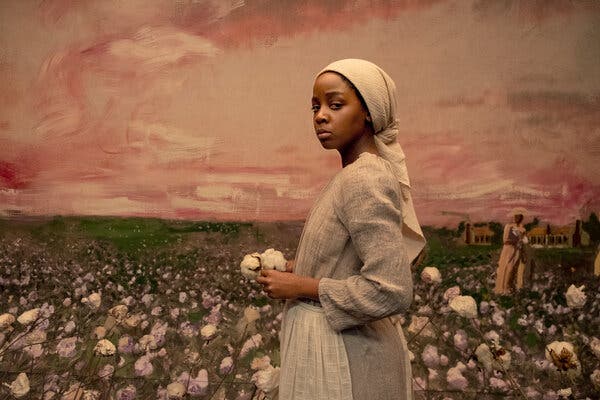

Premiering this Friday on Amazon, The Underground Railroad is the latest in a slew of shows and films slated to tackle the oppressive history of African Americans in this country with powerfully evocative imagery. The limited series based on Colson Whitehead’s Pulitzer Prize-winning historical novel The Underground Railroad is set to submerge its viewers into a hellish journey through the antebellum South through the story of Cora (played by Thuso Mbedu), an enslaved woman who has fled from bondage. In an era where the discourse around cinematic Black trauma is never ending, director Barry Jenkins took it one step further in bracing his cast for the heartrending tasks they undertook in their portrayals and brought in an onset therapist.
“I told them, ‘We’re not going to levitate but we are going to find a way to make magic, the same way our ancestors did,’” Jenkins recalled telling the cast in his interview with LA Times. With an environment fraught with the lofty emotional weight of ancestral trauma, Jenkins recruited Kim Whyte, a mental health therapist based in Georgia, to counsel the cast as they endured scenes of lynchings, suicides, and historically-based violence. The Oscar-winning Moonlight director continued, “I didn’t want these images, even as we were unpacking them, to unpack us.” In the interview, Whyte also discussed the contentious mental space of some of the actors who portrayed racist characters. “People would come up to me and say, ‘I have to portray this. How do I explain this to my mom? I don’t like this character.’ Sometimes they would have to unpack those feelings they would have to portray,” she said.
The relevancy of cinematic depictions of Black trauma has been called into question following the premiere of Amazon’s anthology series, Them, and the live-action Oscar-winning short films Two Distant Strangers; both movies feature realistically unsettling scenes of brutal violence against Black characters at the hands of police and white supremacists. Aside from safeguarding his cast from the emotional duress that arose during filming, the filmmaker is also preparing for similar pushback after the show’s release in spite of early reviews that are seemingly positive. He said, “I know that people are going to encounter these images of my ancestors. This has been the work of the last 4½ years of my life. That responsibility, that weight is still with me. I don’t know how to process that. I used to think that creating the work exorcised those demons or that weight. With this one, it’s not the case. It’s just too much.”














